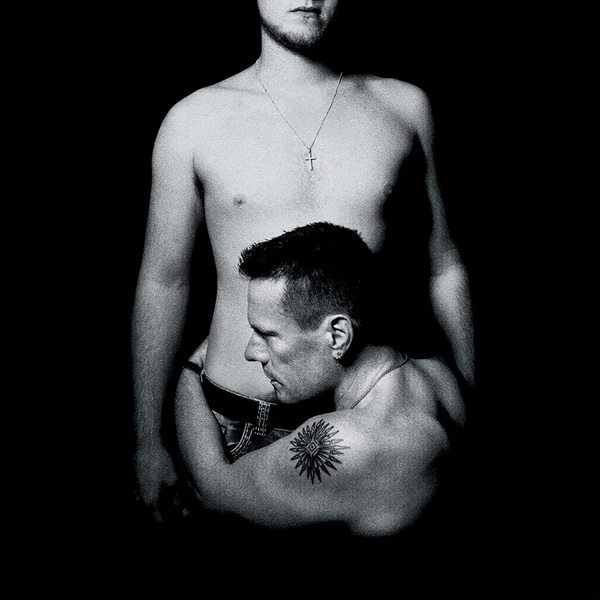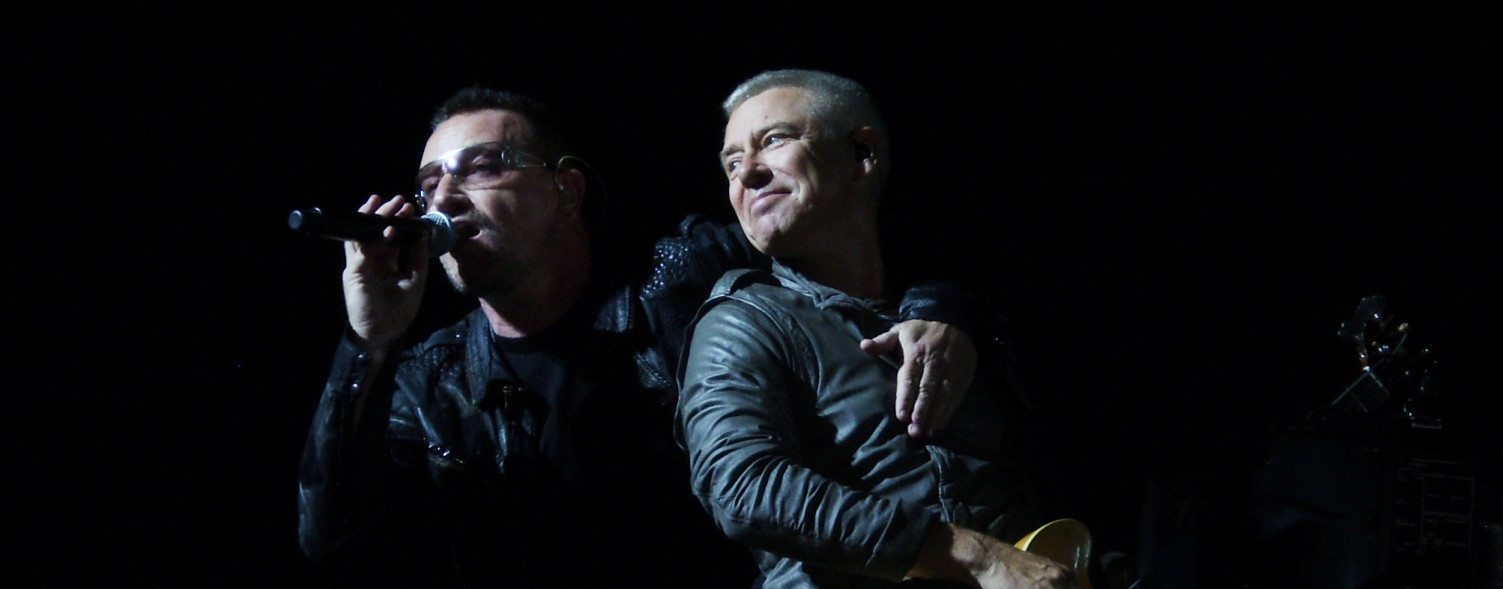Songs of Innocence
 It is almost impossible to review a new U2 record without some form of bias, as a result of either passionate hatred or devoted love for the group. Furthermore, in this particular case it is hard to separate the content of the album from the highly publicised release strategy and marketing stunt.
It is almost impossible to review a new U2 record without some form of bias, as a result of either passionate hatred or devoted love for the group. Furthermore, in this particular case it is hard to separate the content of the album from the highly publicised release strategy and marketing stunt.
In case you missed it, Apple gave away Songs Of Innocence, the 13th studio album by U2, for free to iTunes users on September 9th, five weeks before it is due to hit high street shelves in various physical formats. It appeared out of the blue in an estimated 500 million iTunes music libraries around the world, causing excitement for some and a misguided sense of cyber-violation for others. The solution is simple: if you don’t like U2, don’t download this record from the iCloud and it will take up no extra space on your device. However, if you decide to give it a listen, you will hear one of the most vibrant, direct and reflective albums, not only of the year, but of the band’s career.
Album opener and lead single, ‘The Miracle (Of Joey Ramone)’ begins with the gentle clatter of drums and a chorus of chanting voices before bursting into life with an almighty and forceful distorted guitar, cutting through the track like a newly sharpened knife. This opening conveys to the listener all they need to know about to team mentality of U2; telling them to cut down on soaring ‘wo-ah’ choruses would be like telling the Red Hot Chili Peppers to tone down the funk or Blink-182 to be ‘less pop-punk’ – it is part of the group’s DNA. From here on, lyrically as well as musically, we are guided through U2’s formative influences in terms of music, culture, romance and friendship from their childhood days on the streets of Dublin to their discovery of America in the late ‘80’s (“California, then we fell into the shining sea…”). This is the first time the band have been so open to acknowledge all aspects of their past in such a creative form; instead, they are seemingly always striving to move forwards, evident in career high points such as the epic soundscapes of The Joshua Tree (1987) or the paranoid, frenzied rock of Achtung Baby (1991).
This album is undoubtedly a self-examination, their most personal yet, which will develop and astonish with each listen…
Therefore, on an initial listen the direct approach to both the lyrics and the songwriting on Songs Of Innocence can give the impression of a creative drought. This is not the case – having being ahead of the curve for the last three decades, the band are utilising their years of experience as skilled songwriters and their mastery of studio technique to examine why they decided to play together in the first place and whether, stripped of all grandiose political and philosophical agenda’s, they can still function as four musicians.
The results are often wonderful, with surprisingly layered and subtle musical flourishes embedded within the album, becoming increasingly effective with each listen. For example, a range of harmonising vocals coupled with an appropriately lush string arrangement in ‘California (There Is No End To Love)’ is enough to create those goosebump, eureka-like moments one rarely finds in modern music. In the breakdown of ‘Volcano’, a surging, aggressive gang of vocals corner the listener whilst Bono delivers a powerhouse vocal with same the urgency and heartfelt passion he gave thirty years previously.
Many of the unexpected sounds emerging from this record are the result of new U2 producer, Danger Mouse (of Gnarls Barkley fame), and provide a solid indication of what direction the band could take on their next LP. ‘Sleep Like A Baby Tonight’ is a creeping, pulsating, eerie techno lullaby; a direct descendent from the Zooropa (1993) album, ending with an extended coda featuring spine-tingling chimes and dirty guitar. Another surprise comes on the final track, ‘The Troubles’, transformed from a gentle melancholic U2 track to a thing of truly haunting beauty as a consequence of a repeated chorus performed by Swedish indie pop singer, Lykke Li. Bono reveals, “I can live with denial, but you’re not my troubles anymore…”, marking the end of this chapter in U2’s musical history; there is the sense that the songs are just as much about innocence as they are concerning innocence lost and how to move forwards. Lazy journalists will hear words like ‘troubles’ and ‘soldier’ appear throughout the album and immediately sink their teeth into the controversial aspect of U2’s political activism (I’m pointing at the abhorrent disease of hipster music criticism known as the ‘NME’ here) – but this album is undoubtedly a self-examination, their most personal yet, which will develop and astonish with each listen and with the inevitable live performances next summer. This is where you can reach them now.
Key Tracks: ‘California (There Is No End To Love)’, ‘Sleep Like A Baby Tonight’, ‘The Troubles’

Comments